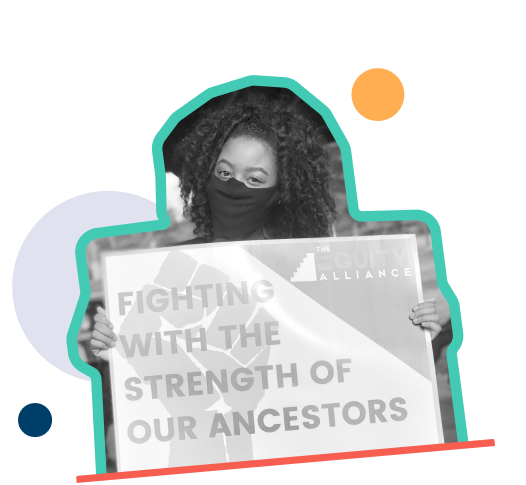Dear friend,
Over Neighborhood Funders Group’s 45 year history, we have been a steadfast presence in philanthropy, pushing funders to more deeply and effectively support people of color-led, grassroots organizing in communities across the country. Each of our six programs seek to organize philanthropy into action, with a commitment to sustaining movements for the long haul.
As the shape of the second Trump administration comes into sharper focus, the lifeline that grassroots community organizing provides to people across the country is clear as ever. Philanthropy has a crucial role to play in supporting and sustaining organizers and the movements they have built. Now is the time to increase funds and opportunities for movements working towards racial, gender, economic, climate, and disability justice.
The NFG community must organize the sector to ensure that movements are funded generously and sustainably. Here are five specific ways funders can take action:
-
Make rapid response funds available to movements year round – in and outside of times of crisis. Eight years ago, many philanthropies offered rapid response support to shore up social movements for their defensive policy, advocacy, and organizing strategies, including support for organizers and movement leaders as they faced increased personal threats from far right activists. This funding was crucial, but short-lived. These funding streams should be made available alongside long-term support. This will allow movements to base-build locally and regionally while also responding to immediate needs.
-
Increase coordination and funding to under-resourced, rural, and small-town communities. In the 2010s, many funders adopted a strategy of providing “catalytic” resources to organizers in under-resourced communities. The thinking was that these gifts might garner big shifts in the short term. This represented a welcome departure from funding primarily in large urban centers, but not all funders expanded on this strategy. Now is the time to double down on this approach. Funders should give seed funding to creative organizing projects in under-resourced areas and support organizing infrastructure across the country. This supports rural and small-town organizers, and organizers in the South and Midwest, as they build power locally, and it makes for stronger regional and statewide organizing opportunities over the long term.
-
Work closely with local foundations and intermediaries to support state and local organizing ecosystems across the country. Building movements strong enough to contend for real power requires strong state and local organizing infrastructure. Building this infrastructure requires that organizations in all states — not just swing states and organizing hotspots — receive ongoing philanthropic support. In the coming months, foundations should increase funding to local and state level organizing. They should also build relationships with local and state-based foundations and intermediaries to deepen their understanding of these ecosystems.
-
Invest in organizational infrastructure. With the threats to nonprofits on the rise (such as HR 9495), funders must ensure movement groups are resourced to strengthen their internal capacity, and funders should provide coordinated support for groups to receive training, operations, and legal support as needed. Funders can do this by providing ample, long-term general support, and deepening their investments in staffing, training, coalition building, operations, legal and technology costs, and team wellness.
-
Work with NFG to organize more funders to move more money to grassroots organizing and powerbuilding. A long-standing challenge in philanthropy is that we make a lot of promises without a lot of lasting follow through. Historically, funders haven’t been organized enough to raise resources collectively, resulting in less support overall to social movements. We have seen this several times in just the last few years: resources ebbed after the early days of the #MeToo movement, after the initial surge of funding during the COVID-19 pandemic, and after the first few months of racial justice uprisings in 2020. Together, we can organize philanthropy to do better: to increase yearly payouts beyond 5%; to give more to intermediaries funding in under-resourced areas; to ensure endowed investments align with movement goals; and to fund base-building, research, narrative, and policy organizations across all grantmaking areas.
If these actions spoke to you, we hope you join us during the week of July 15, when NFG will host our 2025 National Convening: Seeding (and Ceding) Transformational Power in Nashville, TN. NFG and the Convening Committee are excited to offer you the opportunity to co-create an engaging program through our RFP process. The proposal submissions are due on January 31, 2025. Find out more below.
Until then, we encourage you to connect with the NFG community and prepare for the work ahead in 2025. Our movements need us to show up boldly together in the coming years.
In solidarity,
The NFG Team
